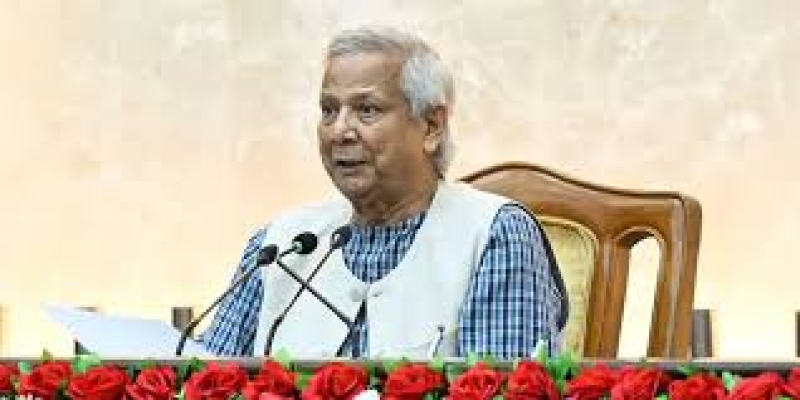- Bangladesh Bank Buys $115 Million to Support Forex Market |
- Tarique Rahman, Daughter Zaima Added to Voter List |
- NCP and LDP Join Jamaat-Led Eight-Party Alliance |
- Tarique Rahman’s gratitude to people for welcoming him on his return |
- Attorney General Md Asaduzzaman resigns to contest election |
Trial of Hasina, her cronies a top priority: CA tells Finnish President

Chief Adviser Prof Muhammad Yunus has said the trials of former Prime Minister Sheikh Hasina and her cronies are a top priority of his government.
During a meeting with the President of Finland, Alexander Stubb, on the sidelines of the UNGA, Prof Yunus stressed that the trials were being conducted in accordance with international legal standards.
“Despite facing trial, she continues to make incendiary and destabilising remarks,” Prof Yunus said, adding that the interim government has sought her extradition to face justice.
The Finnish President met Chief Adviser Prof Yunus on Wednesday.
During the meeting, the two leaders discussed a wide range of issues, including the upcoming general elections in Bangladesh, United Nations reform, the Rohingya crisis, the Russia-Ukraine war, Bangladesh’s bid to join ASEAN, the trials of Sheikh Hasina and her associates and the country's efforts to access hydropower from Nepal and Bhutan.
Prof Yunus expressed gratitude to the international community for its continued support of the interim government since it assumed office in August last year. “International support for our government over the past 14 months has been overwhelming,” he said.
The Chief Adviser reaffirmed the interim government’s commitment to holding free, fair and credible elections in February, allowing the country’s 126 million voters to cast their ballots peacefully and in a festive atmosphere.
“Our people have been deprived of a free and fair election for the past 15 years. Now, they are eagerly looking forward to February,” he added.
Prof Yunus told President Stubb that major political and institutional reforms were underway in Bangladesh, and said political parties are expected to sign the July Charter, a framework for deeper political reform.
President Stubb also enquired about the foreign policy direction of the Interim Government. In response, Professor Yunus said Bangladesh is working to revive SAARC and is actively pursuing ASEAN membership.
“We envision Bangladesh as a key bridge between SAARC and ASEAN. Our application for a Sectoral Dialogue Partnership with ASEAN is a step toward eventual full membership,” he explained.
The Finnish President raised concerns about the ongoing Russia-Ukraine conflict and emphasised the urgent need for reforming the United Nations to enhance its global effectiveness. “The world order is shifting. We must strengthen the UN,” said President Stubb.
In agreement, Professor Yunus remarked that the UN has become largely ineffective in addressing major global crises. “There is growing uncertainty worldwide, and the UN has largely lost its ability to meaningfully influence critical issues,” he said.
The two leaders also addressed the protracted Rohingya crisis and the importance of increased international funding to support over one million refugees currently hosted by Bangladesh.
They also discussed regional connectivity, particularly Bangladesh’s strategic role in allowing landlocked Nepal and Bhutan—as well as India’s northeastern states—access to the Chattogram Port.
“This initiative will significantly accelerate economic growth across the region,” Prof Yunus said.
Energy Adviser Fouzul Kabir Khan and SDG Coordinator Lamiya Morshed were also present at the meeting, reports UNB.

